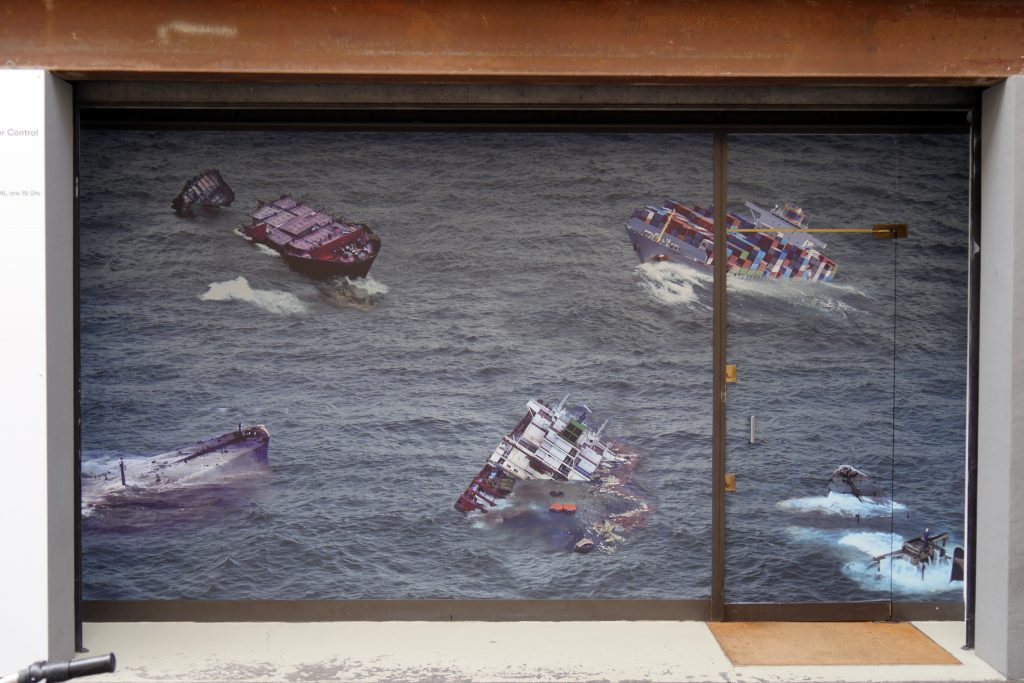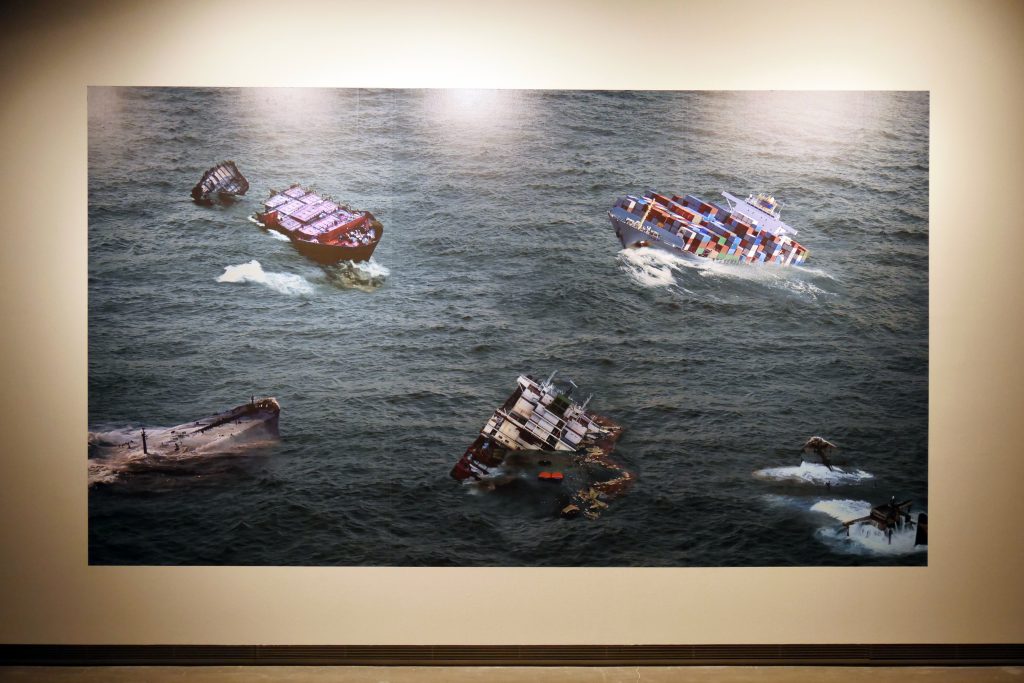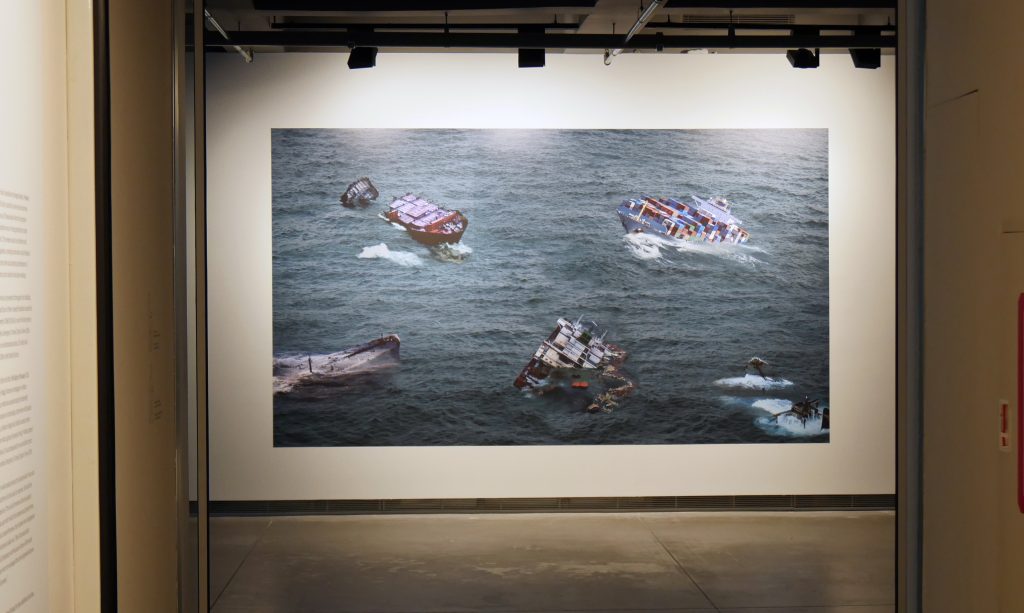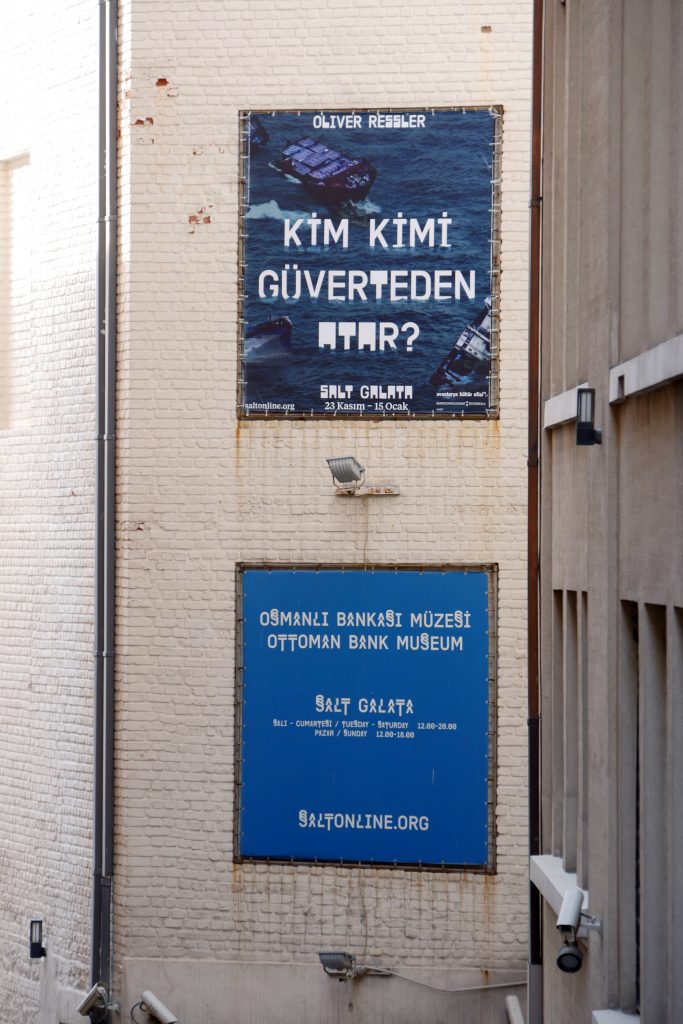Digital prints, posters by Oliver Ressler
2016
There are two versions of “The economy is wounded – let it die!”:
This large-scale photographic work shows container ships and other commercial vessels sinking at sea, a reference to an economic system that depends on global trade and produces ecological and social catastrophes on a daily basis. The work affirms a critical insight in the discussion of climate change: the argument that the catastrophic warming of the planet can be stopped only through systemic change of a kind that would radically reduce the scale of so-called “free trade” of goods across the world. The shipping of goods produced in the Global South over the oceans for consumption in the North, using giant, heavy fuel oil-burning container vessels, has increased total carbon emissions by six times the volume of emissions savings in the North.
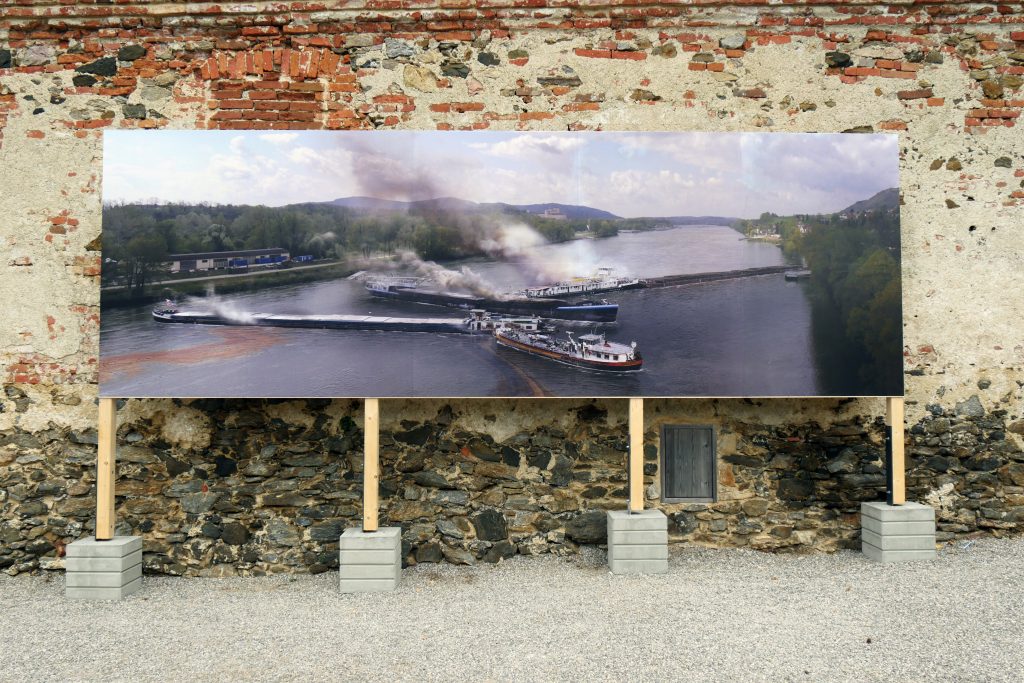
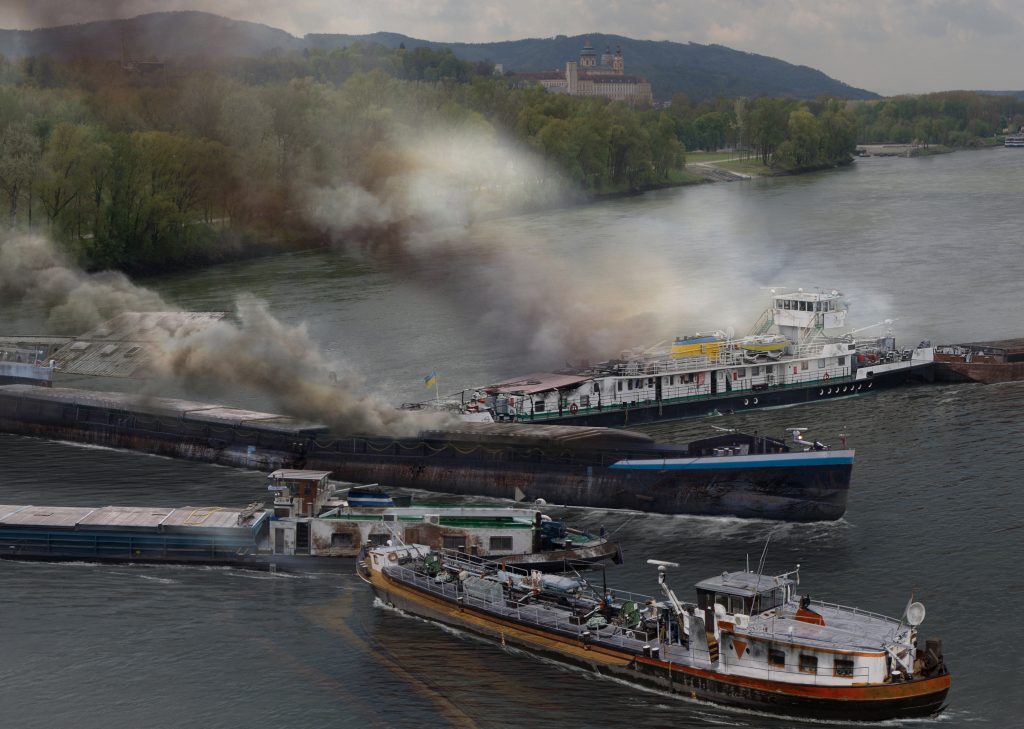
This large-format billboard (6 x 2 meters) shows a panoramic view of the Danube near Melk (Austria), the town closest to the billboard’s location at Schallaburg. Cargo shipping of the kind seen is common on the Danube, carrying some 10 million tons of freight a year into and out of Austria or straight through it. But the ships on the poster are wedged together and some have run aground. Smoke rises and parts of the ships are charred. Diesel spills visibly onto the surface of the water.
At first glance the photographic mise-en-scene suggests a serious shipping disaster, but closer inspection reveals a blockage that could not be accidental. The Danube is seen barricaded from one bank to the other: the cargo channel is cut off and the river made impassable for all shipping, in what could only be a deliberate act of sabotage.
This artwork intervenes in the critical debate whose first premise is that nothing but systemic economic transformation – including radical curtailment of worldwide trade and shipping – can counteract climate change and associated global threats. This would mean much more production on a regional basis for local consumption, in contrast to the current system that squanders vast amounts of heavy fuel oil on trans-continental goods transport and concentrates pollution-spewing factories in the global South.
Many social movements now demand the end of the so-called “free movement of goods”; the billboards attempts to convey this succinctly in a single image. The title “The economy is wounded: let it die!” alludes to a graffito in Paris, May 1968 (L’économie est blessée, qu’elle crève !). Here this evokes the crisis intrinsic to present-day global capitalism, which can be overcome only through wide participation in oppositional praxis of all kinds.
Photography: Gerald Roßbacher
Photo montage: Andreas Jalsovec
With special thanks to Maren Richter
A cooperation between the department Kunst und Kultur / Kunst im öffentlichen Raum of Niederösterreich and the Schallaburg Kulturbetriebsges.m.b.H.
